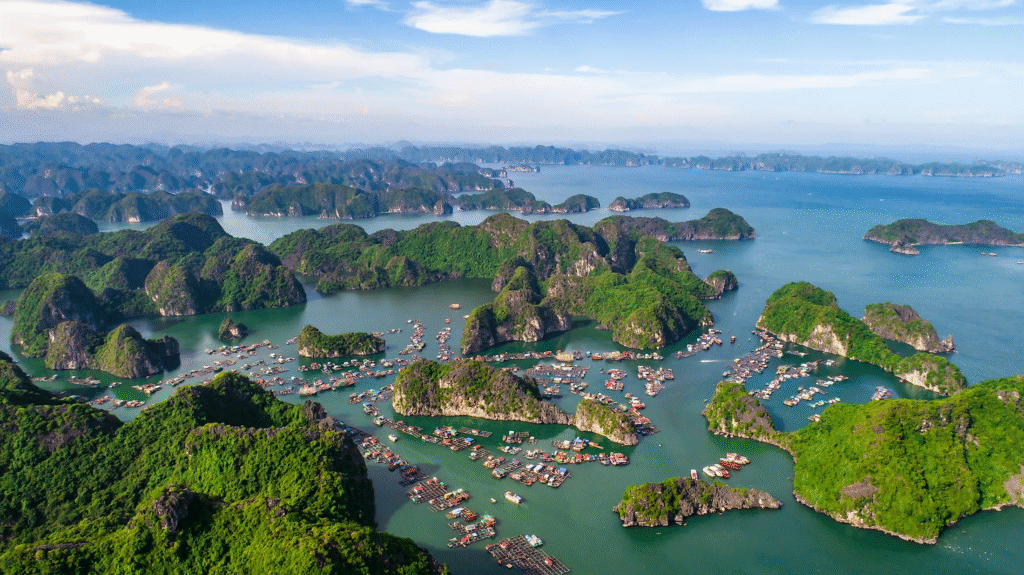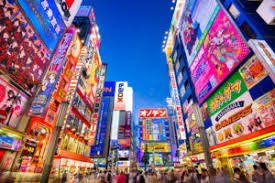🇦🇸 Asia is a continent of immense diversity, fast-growing economies, vibrant cultures, and varied lifestyles. Whether you’re relocating for work, study, or adventure, knowing what to expect will make your move smoother and more rewarding.
Reviewed by Asian Migration Network and ASEAN Secretariat, last updated in July 2025.
Why Should You Move with ReloAdvisor?
ReloAdvisor makes international moves to Asia easier by connecting you with trusted, vetted movers who meet high standards. Get instant side-by-side quotes so you can compare services transparently. Our support team handles any issues or disputes, providing peace of mind. We’ve facilitated thousands of moves across Asia.
Get your 5 free moving quotes now with ReloAdvisor.
How Much Does It Cost and How Long Will It Take?
Typical container shipping costs to Asia range from $2,500 to $7,000 USD based on origin, volume, and services requested. Transit times usually vary between 4 and 14 weeks door to door, depending on shipment size, customs, and shipping method. Sharing containers (groupage) reduces cost but may extend transit times. Flexibility with delivery dates helps save money.
Reviewed by Freightos Market Analytics Team and Maersk Logistics Research Team, last updated in July 2025.
What Visas and Documents Do You Need to Move to Asia?
Visa requirements vary widely across Asian countries and by nationality. Many countries offer work permits, business visas, family reunification permits, student visas, and growing digital nomad visa options (Thailand, Malaysia, Indonesia, etc.). Always check official government or embassy websites for the latest visa information.
Common visa categories include:
- Work visas
- Family reunification
- Student visas
- Digital nomad visas
Reviewed by ASEAN Immigration and National Governments, last updated in July 2025.

What Shipping Options Exist and What Affects the Price?
You can choose full container or groupage/shared container shipping. Full containers provide dedicated space and faster transit; shared containers save costs but may take longer. Pricing depends on:
- Volume and weight
- Distance and shipping route
- Packing and insurance services
- Access at origin and destination ports
Reviewed by International Movers Association and Asian Logistics Hub, last updated in July 2025.
Which Asian Countries Are Popular Among Expats?
- Singapore is known for its business-friendly environment, safety, and multicultural lifestyle. For a detailed relocation guide, explore ReloAdvisor’s ‘How to Move to Singapore guide’.
- Japan attracts expats with its technology sector, culture, and cities like Tokyo and Osaka. Check ReloAdvisor’s ‘How to Move to Japan guide’ for insights.
- Thailand offers a tropical lifestyle with affordable living in Bangkok and Chiang Mai. Learn more in ReloAdvisor’s ‘How to Move to Thailand guide’.
- Malaysia is a hub for expats with its diverse culture and cities such as Kuala Lumpur and Penang. Visit ReloAdvisor’s ‘How to Move to Malaysia guide’.
- For affordable living and growing expat communities, consider Vietnam, Indonesia, or the Philippines. Details available in ReloAdvisor’s regional guides.
Reviewed by OECD International Migration Outlook, last updated in July 2025.
How Do You Find Housing in Asia?
Housing prices vary significantly. In financial hubs like Singapore, Tokyo, and Hong Kong, rents for one-bedroom apartments range from $1,000 to $3,500 USD/month. In emerging cities, you may find options between $400 and $1,200 USD/month. Trusted property portals include PropertyGuru, Housing.com and local real estate agents. Always budget for deposits, agency fees, and utilities, and arrange property viewing before signing leases.
Reviewed by Asia Real Estate Monitor and JLL Research, last updated in July 2025.
How Do You Set Up Banking and Manage Money?
Opening a local bank account is vital for managing finances. Digital banks such as Revolut and Wise facilitate international money transfers whereas local banks like DBS (Singapore), MUFG (Japan), Maybank (Malaysia), and BDO (Philippines) require more documentation. Opening accounts early smooths financial workflows.
Reviewed by the Asian Banking Federation, last updated in July 2025.
What Healthcare and Insurance Options Are Available?
Asian healthcare systems vary. Singapore, Japan, and South Korea provide high-quality care with mandatory insurance. Other countries rely more on private cover. Expats often use global health providers like Cigna Global, Allianz Care, and AXA for initial coverage.
Reviewed by the World Health Organization Asia Pacific, last updated in July 2025.
What Work Cultures and Job Markets Should You Expect?
Work culture varies from hierarchical and formal in Japan and South Korea to flexible and entrepreneurial in Singapore and parts of Southeast Asia. High-demand expat sectors include IT, finance, education, and healthcare. Understanding local business etiquette and contract types is essential.
Reviewed by Asian Development Bank Labor Insights, last updated in July 2025.

How Can You Manage Daily Life and Build a Social Network?
Transportation options are generally extensive, ranging from metros in Singapore and Tokyo to buses and scooters elsewhere. Shopping includes global chains and vibrant street markets. Joining expat groups on Meetup, Internations, and local clubs accelerates social integration.
Reviewed by the Asian Transport Council, last updated in July 2025.
How Do You Cope With Culture Shock?
Adjusting involves phases of excitement, challenge, then comfort. Staying open, keeping contact with loved ones, and joining expat support networks like Internations and Meetup eases the transition.
Reviewed by Migration Policy Institute Asia, last updated in July 2025.
Popular Shipping Routes & Quick Answers
| Origin | Destination | Tips |
| Europe → Asia | Multiple ports | Book 6–12 weeks ahead; watch customs rules |
| US → Asia | Multiple ports | Flexible delivery dates can save money |
| Australia → Asia | Multiple ports | Shared containers often available |
Reviewed by Asian Logistics Association, last updated in July 2025.
Frequently Asked Questions
- How early should I book my move? 6–12 weeks ahead recommended depending on destination and season.
- What documents do movers require? Passport, inventory, proof of address, and valid visas.
- Can I ship part of a container? Yes, groupage and shared container options exist.
- How do I compare moving quotes? Ensure quotes detail packing, customs, and insurance inclusions.
- When should I arrange health insurance? Before or immediately after arrival to avoid gaps.
Start your Asian relocation with confidence: compare movers, check visas, explore housing, trust ReloAdvisor’s detailed guides and get your 5 FREE quotes.



